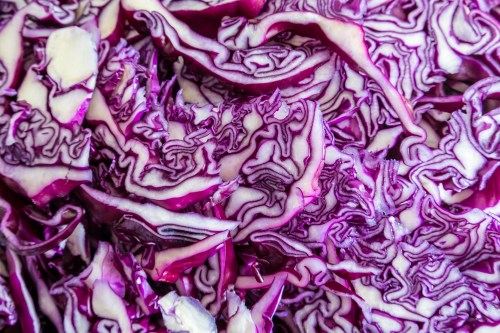In the wellness world, olive oil is often regarded of as liquid gold and a (nearly visible) health halo. Canola oil on the other hand, which is less expensive and used in more foods (at least here in the States), isn’t typically given the same praise. So, what gives? Considering that canola oil and olive oil are the most commonly used oils in the kitchen—is the latter really all that superior?
Experts in This Article
New York City-based registered dietitian nutritionist
Here to settle the canola oil vs. olive oil debate once and for all is registered dietitian Isabel Smith, RD. Ahead Smith unpacks the health benefits of each oil, the optimal ways to use them both, and the final verdict on which one takes the crown in terms of being the most nutrient-rich golden child.
Canola oil vs. olive oil: Which one is the healthiest?
Canola oil health benefits
Let’s tackle canola oil first, which tends to be the more misunderstood of the two. “Canola oil is made from the canola plant,” Smith says, which is a type of seed oil derived from the rapeseed plant (where rapeseed oil comes from and in the same family as mustard). The canola plant is a bright yellow flowering plant and its seeds are 35 percent oil—super high for a plant.
According to Smith, the verdict on if canola oil is healthy (and is rapeseed oil healthy, for that matter) or not is complicated. Here, she details the healthy pros and cons, and whether or not you should be cooking with canola oil.
1. Canola oil is high in omega-6 fatty acids
“Canola oil has been considered ‘healthy’ in the past because it was an alternative to saturated fat,” Smith says. One reason for this is that it’s low in erucic acid, a type of monounsaturated omega-9 fatty acid. “The canola plant was developed from rapeseed in order to use it to produce a food-grade oil with lower erucic acid levels. Erucic acid is a compound present in mustard and rape seeds, which is known to be damaging to our health, specifically our hearts,” Smith explains.
What’s more, canola oil is also high in omega-6 fatty acids, which are good for heart health. But Smith says canola oil has a bit too much of the nutrient. “The problem with canola oil is that it is extremely high in omega-6 polyunsaturated fats (PUFA). A diet high in these omega-6 fats will cause systemic inflammation in the body1, which is an underlying commonality with all modern chronic diseases, including heart disease and diabetes,” she says. The key is to consume more omega-3 fatty acids than omega-6 fatty acids, so consuming too much canola oil can potentially work against you, in terms of heart health.
2. Consuming canola oil could help lower cholesterol
Canola oil is high in phytosterols, which helps absorb cholesterol in the body, therefore reducing overall cholesterol levels. An older study published in European Journal of Clinical Nutrition showed that participants who consumed 75 grams of canola oil a day for three days had lower cholesterol at the end of the trial2 than participants who consumed 75 grams of olive oil. However, this study only looked at nine human participants and was for a very short period of time, so it’s unclear if those effects are true for a larger population and if they are long-lasting effects.
What is canola oil used for?
The reason why canola oil is used so widely in cooking, baking, frying, and food production is because it has a mild, relatively neutral flavor and can withstand a high smoke point (meaning you can cook it at super high heat without it smoking or burning). It’s also relatively inexpensive. It can be used for sautéing, grilling, and stir-frying. Plus, it’s also widely used in baking to add moisture and texture to recipes.
Now that you have all the facts on canola oil, let’s continue the canola oil vs. olive oil debate by running down the pros and cons of olive oil.
Olive oil health benefits
1. Olive oil is linked to lowering inflammation
When it comes to anti-inflammatory cooking oils, you simply can’t go wrong with good-quality, best olive oils for health. “Olive oil is an anti-inflammatory oil, while canola oil is known to be pro-inflammatory,” Smith says. This is because, she explains, olive oil is high in antioxidants, which fights off free radicals in the body. “Olive oil contains strong antioxidants, mainly oleocanthal and oleic acid, which can help reduce inflammatory markers in the body like CRP (C-reactive protein),” she says.
2. Olive oil heart benefits are plentiful
Olive oil is high in monounsaturated fats, which support heart health, and because its polyunsaturated fat content is quite low, it’s less controversial of a heart-healthy oil than canola. In fact, one study of 7,216 men and women at high cardiovascular risk found that consuming olive oil on a regular basis lowered the participants’ risk for cardiovascular disease3 by a whopping 48 percent.
3. Olive oil could help improve memory
In a study, researchers compared the effects of giving butter, extra virgin olive oil, and coconut oil to mice with accelerated brain aging for six weeks. The researchers found that olive oil consumption was linked to improved memory4 (the opposite of the above-mentioned canola oil memory study). This is likely because of those powerful antioxidants, which benefit the whole body (not just the heart), brain included.
The fatty acids in olive oil are also linked to improving brain health, another reason why it could be good for memory. Again, this is just a short-term, small mouse study, so it’s unclear how its findings translate to humans—but still very promising.
4. It may help lower the risk of type 2 diabetes
Olive oil consumption could help protect against type 2 diabetes. One report, which took into account 15,784 people from four different studies, found that regular olive oil consumption was linked to reducing the risk by up to 16 percent5, although the benefits differed depending on the health of the group studied. (More dramatic results were found in people with type 2 diabetes than in the control group.)
What is olive oil used for?
While there aren’t any nutritional downsides to olive oil, it does have some cons in terms of versatility. It has a reputation for having a low smoke point, although that has also been debated in recent years, and experts say it can range between 350-470ºF depending on the type.
In general, it’s a cooking oil that works well for sautéing as well as to top off food that’s already been cooked (finishing oil), like pasta, chicken, and grilled veggies. It also makes a great base for a salad dressing; simply blend it with whatever herbs you love. (Try David Bouley’s turmeric-infused olive oil for one that’s high in anti-inflammatory benefits.)
So, which is healthier: canola or extra virgin olive oil?
Because they’re used in vastly different ways, you’ll likely want to stock both canola oil and olive oil in your pantry. In both cases, Smith recommends buying an organic oil, if your budget allows, which will cut down on the amount of chemicals (including pesticides) the canola or olive plants have been sprayed with.
Considering the nutritional profiles of each oil, you can probably guess which one Smith is more in favor of: Yep, it’s olive oil. “I would advise choosing olive oil almost every time,” she says. But that’s not to say there isn’t a time and place for canola oil, either. “Canola oil has a high smoke point, which is why it’s often used when frying or cooking foods at high heat, but there are much better options, like avocado oil. That said, canola oil is almost always the cheaper option, but spending the little bit of extra money on something like olive oil is always a recommendation of mine.”
Still, if you’re using tablespoon or two of canola oil in your cooking, don’t sweat it. It bears repeating that it still has heart-healthy benefits when consumed, as with many things, in moderation is the key.
Watch this video to learn more about olive oil:
DiNicolantonio, James J, and James H O’Keefe. “Importance of maintaining a low omega-6/omega-3 ratio for reducing inflammation.” Open heart vol. 5,2 e000946. 26 Nov. 2018, doi:10.1136/openhrt-2018-000946
↩︎Nicolia, Alessandro et al. “An overview of the last 10 years of genetically engineered crop safety research.” Critical reviews in biotechnology vol. 34,1 (2014): 77-88. doi:10.3109/07388551.2013.823595
↩︎Ellegård, L et al. “Rapeseed oil, olive oil, plant sterols, and cholesterol metabolism: an ileostomy study.” European journal of clinical nutrition vol. 59,12 (2005): 1374-8. doi:10.1038/sj.ejcn.1602249
↩︎Lauretti, Elisabetta, and Domenico Praticò. “Effect of Canola Oil Consumption on Memory, Synapse and Neuropathology in the Triple Transgenic Mouse Model of Alzheimer’S Disease.” Scientific Reports, 2017, https://doi.org/10.1038/s41598-017-17373-3.
↩︎Guasch-Ferré, Marta et al. “Olive oil intake and risk of cardiovascular disease and mortality in the PREDIMED Study.” BMC medicine vol. 12 78. 13 May. 2014, doi:10.1186/1741-7015-12-78
↩︎Farr, Susan A et al. “Extra virgin olive oil improves learning and memory in SAMP8 mice.” Journal of Alzheimer’s disease : JAD vol. 28,1 (2012): 81-92. doi:10.3233/JAD-2011-110662
↩︎Schwingshackl, L et al. “Olive oil in the prevention and management of type 2 diabetes mellitus: a systematic review and meta-analysis of cohort studies and intervention trials.” Nutrition & diabetes vol. 7,4 e262. 10 Apr. 2017, doi:10.1038/nutd.2017.12
↩︎
Sign Up for Our Daily Newsletter
Get all the latest in wellness, trends, food, fitness, beauty, and more delivered right to your inbox.
Got it, you've been added to our email list.











